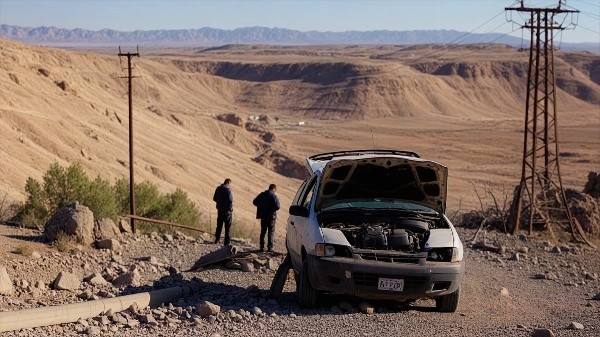Iran’s Plan to Strike Back Against the U.S.
Iran’s Military Preparations Following U.S. Attacks
Loading...

Turkey says it hit targets linked to the Kurdistan Workers’ Party, which it blames for the attack on aerospace and defence company TUSAS.
Retaliatory Airstrikes Target Kurdish Militant Positions
Turkey has launched airstrikes against Kurdish targets in Iraq and Syria, responding to a violent attack on TUSAS, a key state-run aerospace and defence company near Ankara. The assault on TUSAS resulted in the deaths of five individuals and injuries to over 20 others. The Turkish Ministry of National Defence reported on Thursday that 47 targets were successfully “destroyed” in the aerial offensive, although specific details regarding the locations targeted were not disclosed. The ministry emphasized that all necessary precautions were taken to prevent civilian casualties.
Context of the Attack
Defence Minister Yasar Guler stated that Turkish forces targeted 29 sites in northern Iraq and 18 in northern Syria. The attack was framed as a necessary measure against the Kurdistan Workers' Party (PKK), which Turkey blames for the TUSAS incident. The PKK is recognized as a terrorist organization by Turkey and its Western allies, and it has been engaged in a long-standing conflict for autonomy in southeastern Turkey.
The Syrian Democratic Forces (SDF), which are backed by the United States and play a crucial role in the fight against ISIS, reported that the Turkish airstrikes in northern and eastern Syria resulted in the deaths of 12 civilians, including two children, and left 25 others wounded. The SDF comprises the Kurdish People’s Protection Units (YPG) and Arab fighters, controlling significant portions of northern Syria, including oil-rich areas.
Identifying the Attackers
Following the TUSAS attack, Turkish Interior Minister Ali Yerlikaya identified one of the attackers as a “PKK terrorist” known by the codename “Rojger,” along with a woman named Mine Sevjin Alcicek. Guler vowed to pursue the attackers relentlessly, declaring, “We will pursue them until the last terrorist is eliminated.”
In a memorial ceremony at a defence industry fair in Istanbul, he reiterated that Turkish forces would ensure that “no member of the treacherous terrorist organization will escape.” There has been no immediate response from the PKK regarding the attack on TUSAS, and no group has claimed responsibility for the assault.
Heightened Security Measures
In the aftermath of the attack, security measures have been intensified at TUSAS's headquarters, with thorough checks on vehicles and individuals. Funerals for the victims of the attack were conducted on Thursday, and increased security protocols were reported at Istanbul’s main airports. Sabiha Gokcen Airport advised passengers to arrive “at least three hours” early due to heightened security concerns.
Interestingly, the TUSAS attack occurred shortly after Devlet Bahceli, the leader of Turkey's far-right Nationalist Movement Party (MHP), suggested that the imprisoned PKK leader, Abdullah Ocalan, could be granted parole if he renounces violence and disbands his organization.
Regional Reactions and Ongoing Conflict
President Recep Tayyip Erdogan condemned the attack during a meeting with Russian President Vladimir Putin, labeling it a “heinous terrorist attack.” The Iraqi embassy in Ankara also condemned the violence, expressing solidarity with Turkey and reaffirming Iraq’s commitment to combating terrorism. Earlier this year, Iraq had imposed a ban on the PKK.
Turkey frequently conducts air operations against PKK positions in Iraq and against Kurdish groups in Syria affiliated with the PKK. The UAVs produced by TUSAS have proven vital in Turkey's military efforts against Kurdish fighters. As the conflict persists, questions loom over the potential for dialogue and resolution. The pro-Kurdish Democratic Regions Party (DEM) condemned the attack, highlighting that it coincided with a time when discussions for peace had begun to surface. Many observers are now left wondering if there remains any space for peace amidst escalating violence.
Editor
Iran’s Military Preparations Following U.S. Attacks
Troops remain in five strategic locations, raising fears of renewed tensions and long-term occupation.
Opposition forces have taken control of the capital after a significant offensive. Here is how it unravelled.
